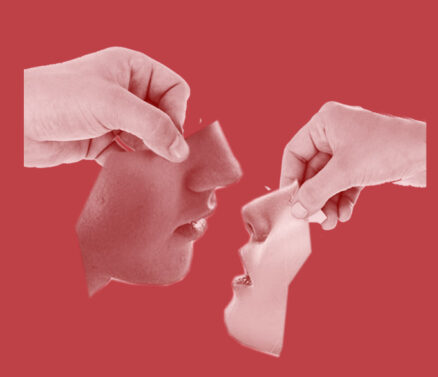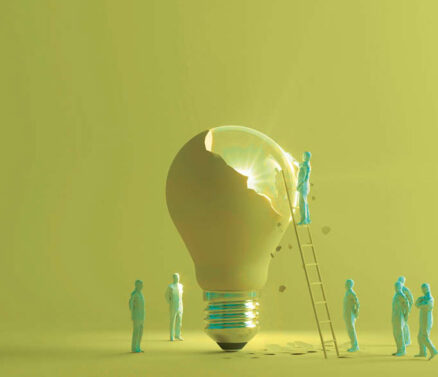Our Programs
Our program is divided into four different pillars:


Individuals
For people who want to find out more about themselves, strengthen their skills, develop their personality and get rid of old topics.


Couples
Couples who want to learn how to build long-lasting satisfied relationships. A journey how two individuals can stay individuals and can create simultaneously a healthy connection. How 1+1 become 3.


Organisations
Organizations that aim to develop relevant skills and qualities for future-oriented managers, who value people as important and central design factor in the development of a company.


Training
Training program to become gestalt counsellor. For professionals who want to deepen their self-awareness and improve their relationship skills as important key factor in successful work with people.

INDIVIDUALS
Life in the modern world, with its different requirements and constant change, poses a great challenge.
We have learned to respond to the questions of life as humans are masters of adaptation and problem-solving. When needed we use the support of family, partners, colleagues, and friends. Still there might be situations where we feel stuck, and don't get further with our own resources. A professional support from outside could be useful then. Therapy, counseling, or coaching can be beneficial to sort out your confusions and to practice the first steps of change.In addition to individual meetings, we also offer possibility to work in group setting. Based on research findings we can also confirm from our own experience, that group work has strong power and healing effect. In relation with others and using the experience and wisdom of the group members, strong change processes can be initiated.The group has its own character according to the motto: the whole is something different and more than the sum of its individual parts (Christian von Ehrenfels).Participation in a group work will be discussed individually with a trainer in a pre-meeting.COUPLES
As humans, we are an integral part of a social system. Our survival, growth, and well-being depend on our social relationships.
The nature of these relationships, their proximity or distance, and their cultural and ethical meanings vary across societies and time. Western culture is characterized by an individualistic understanding of society, which views individuals as autonomous entities in constant competition with others.The most basic unit of social relationships is the couple relationship. In this relationship, we seek lasting love, which is an inner force that holds the couple together. We hope that our intimate desires, dreams, and ideas will become a reality, and that the relationship will satisfy our deepest needs for closeness, understanding, and support.However, we soon discover that love relationships are not as simple or idealistic as we would like them to be. Everyday life, with its demands of work, children, elderly parents, and individual needs, can make relationships difficult or even unbearable, even though both partners initially wished for the same things.Our relationships challenge us to deal with two inseparable polarities: autonomy and commitment. We must find a balance between these two apparent antipodes in our daily lives. Love is a desire for unity and merging, but if the outcome is repeatedly 1+1=1, the relationship loses something valuable. We aim for an outcome of 1+1=3, where 3 represents something new that two people create together.In couple counseling and courses, we strive to understand the "secret" of healthy relationships. To achieve this, you will learn to understand your inner processes and actively experience your relationship together.Our behavior and emotions are shaped by our experiences and learning from childhood, our family of origin, and society's demands and limitations. Some of this learning is explicit, while some is implicit. We may remember some of it clearly, while other parts are foggier. This knowledge continuously impacts our behavior and emotions and gets triggered in our couple relationships, even when we don't remember when or how we learned it.Therefore, it is essential to recognize that our partner is often not the reason for our strong reactions but a trigger. In couple school, you learn how to separate the present from the past, take responsibility for your actions and words, and live the relationship you truly desire.In different courses we are dealing with following topics:
• My relationship experiences, the family of origin, and my inheritance.• Introduction to the concept of couple school and its benefits.• The importance of self-awareness and personal growth in relationships.• Identifying and overcoming negative patterns and behaviors.• Effective communication techniques and conflict resolution strategies.• Building trust, intimacy, and emotional connection.• Understanding and accepting differences and finding common ground.• Setting healthy boundaries and maintaining individuality within the relationship.• Navigating life transitions and challenges as a couple.• Fostering a supportive and nurturing partnership.• Practical exercises and tools for ongoing growth and development.By participating in couple school, you and your partner can expect to:• Gain a deeper understanding of yourselves and each other.• Improve communication and conflict resolution skills.• Strengthen emotional connection and intimacy.• Build trust and mutual respect.• Overcome negative patterns and behaviors.• Navigate life transitions and challenges more effectively.• Enhance your overall relationship satisfaction and happiness. Remember, couple school is not a quick fix but a journey of growth and discovery. It requires commitment, effort, and openness from both partners. By embracing this opportunity for personal and relational growth, you can create a stronger, healthier, and more fulfilling partnership.

ORGANISATIONS
Globalization and digitalization have significantly impacted businesses and organizations in recent decades, reshaping development, production, marketing, and internal structures.
Decentralization, flexibility, and adaptation are now constant challenges for leadership and management. To keep pace with these changes, organizations need knowledgeable individuals capable of embracing change. The importance of each employee cannot be overstated, as they are expected to possess critical thinking, problem-solving, self-management, active learning, resilience, and stress tolerance skills.Productivity is closely linked to employee well-being, so businesses must foster a trusting environment with honest and constructive feedback, support, and a culture that encourages cooperation and allows mistakes. Employees also expect a sense of community, communication, and belonging.Neuroscience research has demonstrated that a safe environment promotes learning, creativity, and intrinsic motivation. In contrast, management based on control, one-way communication, and low participation can lead to passivity and inactivity over time.To meet the challenges of future demands, new types of leadership and corporate culture are necessary. Ecological change, migration, and war require innovative approaches, not outdated solutions. The traditional top-down hierarchy, linear decision-making, and social exclusion inhibit creativity and responsibility.Leaders now require not only cognitive skills but also strong emotional and interpersonal competencies. Developing strong leadership skills involves a comprehensive understanding of one's strengths and weaknesses.Courses: Developing personal skills as a leader
Communication and Relationship Skills for the Manager:
- Personal Understanding of Leadership: Status Quo and Vision
- Relationship with Yourself as a Prerequisite for Being a Leader
- Values and Purpose in Work
- Attitudes and Inner Compass
- Sovereignty, Authenticity, and Integrity
- Openness and Security: Finding the Right Balance
- Dealing with Wounds and Pain
- Self-Awareness: Feelings, Thoughts, and Desires
- Space: Atmosphere, Resonance, Field Experience
- Relationship: Cooperation and the Social Factor
- Here and Now: The Power of Presence
TRAINING
The course is primarily experience-based, fostering deeper and long-lasting learning with significant life changes.
Theory is used judiciously and appropriately to support the understanding of individual experiences.
The trainer will provide additional resources for self-study and knowledge enhancement.
The course will be led by a theoretically and practically well-trained leader, with experience in individual, couples-, group, and organizational work. The trainer is required to be in regular supervision and ongoing training.
With the combination of two leaders in each course, individual work and group processes can be fully supported.
Principles of Group Work
- A group is an independent entity with its own power. Through the group process, participants' self-development is supported by reflections and mutual challenge.
- Awareness of the present moment is the reference point for being with oneself and others in a specific place, space, and situation.
- Experiments aimed at consciously accessing specific personal topics and realizing hidden assumptions.
- Trying new ways of acting in a safe environment. Seeing responsibility as the ability to respond to specific situations in various ways, always remaining responsible for the choices we make.
- Understanding the concept of the field where we are intertwined with each other and ecologically. Everything is related to a wider field; the part (figure) is defined by the intrinsic nature of the whole.
- Working holistically, as a person is an integral unity of different aspects, which combines mental (cognitive), social, psychological, bodily experiences (affect, emotions, sensations), and soul expressions. All this interdependency is considered and not reduced to just one aspect of the person.

